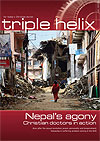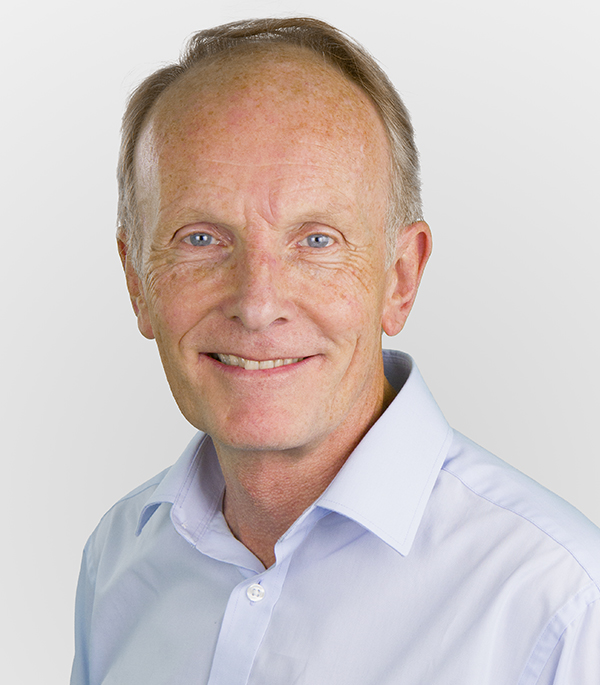Rick Thomas highlights an often-overlooked problem.
Imagine. You and your partner are experienced foster carers. The boy presently in your care is six years old and has been with you for four years. You never met the birth mother and have little information about the boy's early life. He is struggling at school, falling behind his peers, and is sometimes aggressive towards them. He appears happiest when playing on his own. The school's Special Educational Needs Coordinator (SENCO) suggests he might have 'autistic tendencies' and refers him to Child and Adolescent Mental Health Services (CAMHS) for assessment. He is offered psychotherapy for possible depression but after two sessions the therapist says he has been misdiagnosed and refers him back to his GP. Appointments with a paediatrician, educational psychologist, speech and language therapist and child psychiatrist all follow over the next twelve months. Numerous assessments are undertaken but consensus is lacking. Your social worker begins to ask probing questions about the state of your marriage and you start to feel your care is coming under suspicion. You confide in your Health Visitor, who trawls through records of postnatal home visits and spots a recurring comment – that the birth mother 'appeared to have been drinking'. Could this be relevant?
Fetal Alcohol Spectrum Disorders (FASD) describes a range of disorders caused by the toxic effects of alcohol on the developing fetus. At the severe end of that spectrum are those with Fetal Alcohol Syndrome (FAS), a condition characterised by stunted growth, abnormal facial features and permanent brain damage that results in impaired intellectual function alongside a range of other neurological, psychological, social and behavioural disorders. The characteristic facial features of FAS (shorter palpebral fissures, smaller nose, flatter philtrum and thinner upper lip) are often not present in other forms of FASD, but the invisible, permanent neurodevelopmental effects will be expressed in all, to varying degrees – a lifelong disorder requiring lifelong support.
Incidence
Although 'full-blown' FAS is not common, it appears to be on the rise, increasing 37% between 2009 and 2013. FAS is thought to affect about 1% of live births in the UK – about 7,000 per annum. However, the number of children with FASD could be two to five times that number – they are alcohol's 'hidden iceberg'.
Diagnosis
When facial features are obviously present, then the diagnosis of FAS is straightforward. Less severe forms are harder to pick up – analysis of facial photography and full neurological screening will be needed. Cognitive, sensory, communication and memory functions are all affected. FASD shares a number of features with ADHD and ASD from which it must be distinguished (and with which it can co-exist), as it must from other pregnancy related conditions like neglect, prematurity, (other) drug effects and certain genetic disorders such as Fragile X.
Successful diagnosis therefore requires a multidisciplinary assessment of a kind currently available in very few centres in the UK. For lack of such expertise, affected children may be misdiagnosed with ADHD, ASD, attachment or behavioural disorders, and given inappropriate treatment. A correct diagnosis not only confirms the cause but gives some idea of what to expect, and directs towards appropriate areas of treatment. Early diagnosis will also reduce the likelihood of having another child with FASD by up to 80%.
Awareness and prevention
Other arguments aside, the sheer cost of lifetime care for affected children and adults means that resources must be put into raising awareness amongst health workers, educators and the public at large. Prohibiting advertisements selling the message that alcohol is necessary for fun would be a step forward. Better labelling of alcoholic products, with clearer warning symbols, would also be helpful. Public health and safety campaigns could be used to promote awareness of the risks of drinking during pregnancy. It is impossible to say what is a 'safe' level of drinking during pregnancy – risk is variable – but what can safely be said is that 'no alcohol' means 'no risk'. One simple step towards quantifying risk prevalence would be to include a record of alcohol consumption as a routine part of antenatal care (using standardised questionnaires such as Audit-C, T-ACE or TWEAK).
Guidance
Clear and consistent guidance must come from the Chief Medical Officer, Department of Health and NICE, and from the BMA, GMC and RCOG, saying that the only advice to women who are, or who are trying to become pregnant is that they should avoid alcohol completely. Presently, some official guidance suggests it is safe to drink one or two units, once or twice a week when pregnant. How many units of alcohol there are in a glass of wine, for example, is in any case difficult to be sure about, such is the variety of alcohol strengths and wineglass sizes. Just two 250ml glasses of 13% alcohol wine would contain 6.5 units of alcohol – officially a 'binge'!
Treatment and support
Treatment is about tailoring the environmental, psychological and medical support to each individual, 'scaffolding' what they cannot do for themselves, and encouraging what they can. Understanding what they can and can't do avoids inappropriate blame being heaped on children, or their parents/carers.
Educating educators is no less important; less severely affected children may well be first 'recognised' by play leaders or teachers. Inevitably, many of these children are fostered or adopted, often before signs of FASD come to light. Information, support and advocacy for parents and carers are essential. There are a number of volunteer organisations in the UK doing excellent work in this area (eg FASD Network in the North East and Yorkshire; FASD Trust, based in Oxfordshire), but there is a limit to what they can do. Statutory measures are needed.
The role of government
The UK has the unenviable reputation of being Europe's number one nation for binge-drinking. Over 2% of the UK population may already be affected by FASD, a figure set to rise further if current trends continue. A concerted and sustained effort is needed, similar to the push to curb smoking over the last two decades. But as yet there is little evidence of political will.
Dr Raja Mukherjee, Consultant Psychiatrist and one of the few FASD specialists in UK, considers a nationwide prevalence study to be the priority. National statistics will be needed to persuade the government to direct significant resources to training, assessment and treatment.
What next?
Many of these recommendations could be achieved relatively quickly. Looking further forward, it is essential to train specialists, build diagnostic capacity and develop 'hubs' around the UK where the necessary neurodevelopmental assessments can be carried out, strategies for care supervised, and training for local practitioners given. The current postcode lottery must end.
Providing appropriate training for, sharing information between, and integrating the actions of the medical, educational, social care and criminal justice agencies, all of whom are involved with these children and their families/carers, represents an enormous challenge. Multiplying the number of voluntary community-based support groups for parents and carers, whilst avoiding unhelpful duplication or competition, is also vital.
Our part?
As practising health professionals, we could:
- Raise our own levels of awareness
- Display advice posters and literature (www.nofas-uk.org)
- Integrate enquiry into alcohol consumption as a routine part of antenatal care
- Encourage local support groups for parents and carers (www.fasdtrust.co.uk)
- Encourage local commissioning bodies to consider funding prevalence studies
- Request unambiguous guidance from BMA, GMC and Royal Colleges
- Invite MPs to support better labelling , funding for compensation and for national prevalence studies
Many of those currently working in this field are Christians, motivated by the same compassion and regard for the value of all human life that energises Christians involved in the care of other vulnerable people. They face significant obstacles – vested interests, public attitudes, scarce funding. They are the champions of a previously hidden group of children, who will require lifelong support, and they will value our encouragement and prayers.
Rick Thomas is CMF Public Policy Researcher.
































